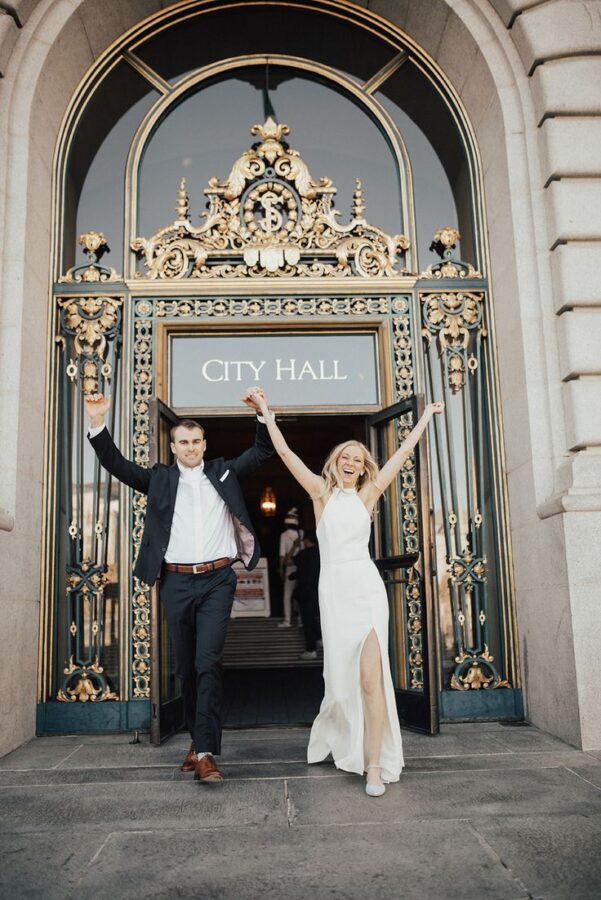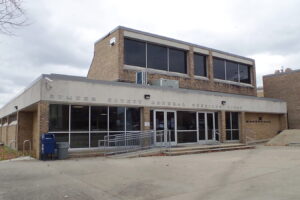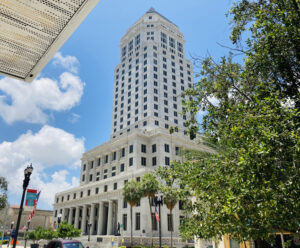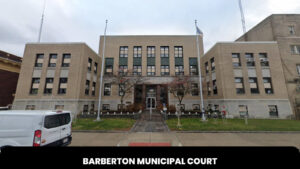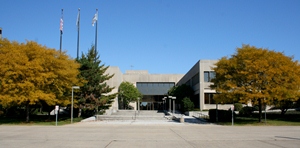Courthouse Marriage: Everything You Need to Know
Introduction to Courthouse Marriages
A courthouse marriage is a legal marriage ceremony performed by a judge or other authorized official at a local courthouse. Unlike a traditional wedding, courthouse marriages are quick, simple, and inexpensive.
Courthouse weddings have been around for centuries. In the past, they were often used by couples who couldn’t afford a large ceremony or by those who preferred privacy. Today, courthouse marriages remain popular for couples seeking convenience, affordability, or an intimate wedding.
Reasons for Getting a Courthouse Marriage
There are many reasons couples choose to get married at their local courthouse instead of having a big traditional wedding. Here are some of the top motivations:
Simple and Fast Process
The courthouse wedding process is straightforward and can often be completed the same day as applying for the marriage license. The ceremony itself usually lasts only 10-15 minutes. There are no venue logistics, caterers, or decorations to coordinate like a large wedding.
Low Cost
Courthouse weddings typically have minimal fees. The cost is usually just the marriage license fee, which ranges from $50-$150 depending on the location, plus small courthouse fees. There are no expenses for venues, food, flowers, attire, or other traditional wedding costs.
Privacy
For couples who don’t want to make a big fuss about their wedding, a courthouse ceremony offers privacy. The events are low key with only the couple and perhaps a few guests. There is no need for save-the-dates, invitations, or public announcements.
Non-Traditional Couples
Same-sex couples, interracial couples, and couples with large age differences often gravitate toward courthouse weddings. Unfortunately, they sometimes face discrimination when planning a traditional public wedding, so a courthouse provides an accepting environment.
Second Marriages
Those getting remarried may prefer a small courthouse wedding, especially if they had a large ceremony the first time. A simple event puts the focus on the couple rather than an elaborate production.
The Courthouse Marriage Process
Getting married at the courthouse is easy but does require some preparation. Here are the typical steps:
Requirements and Documents Needed
To get married in the Court, the courthouse will ask for identification, the marriage license, and in some cases, a certified copy of your divorce decree or death certificate if previously married. Couples may also need to provide witness names and pay courthouse fees.
Making an Appointment
Most courthouses schedule wedding ceremonies in advance. Couples will select a date and time and provide all required paperwork. Courts are busiest in the mornings, so afternoon slots are often easier to reserve.
The Ceremony
The brief ceremony takes place in a courtroom, judge’s chambers, or office. Vows may be standard or personalized. Rings can be exchanged and personal touches like flowers or photos included. A few guests are sometimes permitted.
After the Ceremony
The officiant files and records the marriage certificate with the county. Couples can request copies. The marriage is legalized once completed and papers are filed. Courthouse weddings cannot be annulled.
Pros of Courthouse Marriages
There are many advantages to tying the knot at the courthouse:
Convenience and Speed
With just a quick online reservation, courthouse weddings can happen right away. There is no 12+ month wedding planning process. Courthouse marriages allow spontaneity and convenience.
Affordability
A courthouse wedding costs a fraction of a traditional wedding, which averages $30,000. The savings allow couples to invest, purchase a home, or take a dream trip.
Intimacy
The courthouse ceremony is intimate, focused purely on the couple without any big production or crowds. Some find this romantic and meaningful.
Flexibility
Couples define their own courthouse wedding vision. It can be super casual or touchingly sentimental. There are opportunities for personalization despite the process being simple.
Cons of Courthouse Marriages
While courthouse weddings have many perks, they do have downsides as well:
Lack of Celebration
Large weddings provide a joyous celebration with family and friends. This element is missing from a courthouse elopement.
No Guests
Most courthouses restrict guests to 1-4 people. For couples with large families, limiting attendance may disappoint loved ones.
Minimal Romance
Courthouse weddings tend to be functional versus emotional or romantic. There is little time for personalized vows, music, or ambiance.
Difficult to Change Names
Unlike traditional weddings, courthouse weddings don’t provide a seamless way for the bride to change her name. Additional paperwork is required later.
Who is a Courthouse Marriage Right For?
While courthouse weddings aren’t for everyone, they are a good fit for:
- Couples wanting simplicity – If coordinating a big wedding sounds stressful, the ease of a courthouse elopement may appeal.
- Couples on a tight budget – For cost-conscious couples, a courthouse wedding is an affordable alternative.
- Couples wanting privacy – Low-key couples and celebrities prefer the privacy and discretion of courthouse weddings.
- LGBTQ couples – Same-sex couples may face discrimination from wedding vendors or venues making courthouses more welcoming.
- Older couples – Those marrying later in life or remarrying may view large weddings as unnecessary.
- Couples marrying quickly – Couples like expectant parents wanting to wed right away benefit from the quick courthouse process.
How to Personalize a Courthouse Wedding
While courthouse weddings are simple, couples can add thoughtful touches:
- Invitations – Send out customized invitations to share the news even if the event is small.
- Attire – The bride and groom can wear special outfits beyond everyday clothes if desired.
- Flowers – Work with a florist to have a bouquet and boutonniere delivered for the ceremony.
- Photography – Hire a photographer to capture candid courthouse shots.
- Reception or dinner after – Host a small reception or dinner at a restaurant after the ceremony to celebrate.
Courthouse Weddings vs. Eloping
Courthouse marriages are often confused with eloping. Though there are similarities, there are differences:
- Eloping usually refers to couples running away alone to get married in secret. Courthouse weddings can include a few guests.
- Elopements can happen anywhere like at a park or chapel. Courthouse weddings must be at an official courthouse.
- With elopement there is often no marriage license filed. Courthouse weddings legally file paperwork.
- Eloping connotes impulsiveness. Courthouse weddings require following procedures.
- Couples eloping rarely have a reception after. Receptions are common after courthouse ceremonies.
Creative Courthouse Wedding Ideas
Courthouse weddings allow creativity too. Consider these ideas to personalize your courthouse nuptials:
- Theme or dress code – Add a fun theme or matching color scheme that fits your personality.
- Custom vows – Opt to write your own meaningful vows rather than just reciting standard ones.
- Meaningful rings or jewelry – Exchange or wear rings or accessories with significance.
- Photo shoot after – Schedule a photo session around town or in a park after the ceremony.
- Dinner reception – Treat your guests to a celebratory private dinner after the courthouse wedding.
- Mini-moon getaway – Take a short one or two night mini-honeymoon trip right after the wedding.
Conclusion
While courthouse weddings lack the grandeur and customization of traditional weddings, they offer unparalleled simplicity, affordability, and convenience for couples wanting a low-key marriage. The streamlined process skips the stress and costs of elaborate wedding planning. With a few thoughtful personal touches, courthouse weddings can be intimate and memorable. They provide a practical, economic, and hassle-free path to marriage for modern couples seeking efficiency and flexibility.
Frequently Asked Questions
Can you have music at a courthouse wedding?
Most courthouses do not allow recorded music or bringing musical instruments during the short ceremony. Some may let you hum a tune acapella.
What should you wear to get married at the courthouse?
Attire can range from casual everyday wear to formal wedding gowns and tuxedos. Dress comfortably according to your preferences. Some courts prohibit shorts or flip flops.
How much do courthouse weddings cost?
Expect $50-$150 for the marriage license fee. Courthouse fees range from $25-$75. Some charge extra for weekends. Witnesses and photography add costs too. Total is $100-$300. get all details at usmarriagelaw
Can you exchange vows at a courthouse wedding?
Some courthouses permit brief personalized vows, but most restrict couples to repeat basic “I do” vows. Opt to recite special vows privately before or after if desired.
Where do you have the ceremony in a courthouse wedding?
The ceremony typically takes place in a room designated for weddings like a courtroom, judge’s chambers, or administrative office rather than the courthouse lobby or halls.

